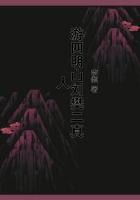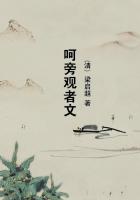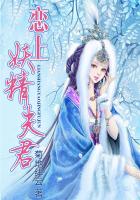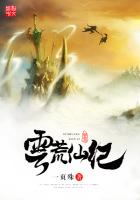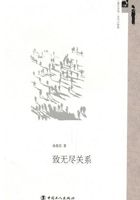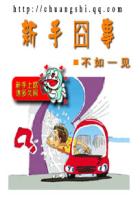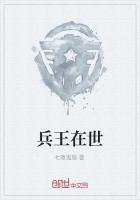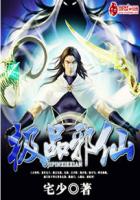As worms are not guided by special instincts in each particular case, though possessing a general instinct to plug up their burrows, and aschance is excluded, the next most probable conclusion seems to be that they try in many different ways to draw in objects, and at last succeed in some one way.But it is surprising that an animal so low in the scale as a worm should have the capacity for acting in this manner, as many higher animals have no such capacity.For instance, ants may be seen vainly trying to drag an object transversely to their course, which could be easily drawn longitudinally; though after a time they generally act in a wiser manner, M.Fabre states that a Sphex--an insect belonging to the same highly-endowed order with ants--stocks its nest with paralysed grass-hoppers, which are invariably dragged into the burrow by their antennae.When these were cut off close to the head, the Sphex seized the palpi; but when these were likewise cut off, the attempt to drag its prey into the burrow was given up in despair.The Sphex had not intelligence enough to seize one of the six legs or the ovipositor of the grasshopper, which, as M.Fabre remarks, would have served equally well.So again, if the paralysed prey with an egg attached to it be taken out of the cell, the Sphex after entering and finding the cell empty, nevertheless closes it up in the usual elaborate manner.Bees will try to escape and go on buzzing for hours on a window, one half of which has been left open.Even a pike continued during three months to dash and bruise itself against the glass sides of an aquarium, in the vain attempt to seize minnows on the opposite side. A cobra-snake was seen by Mr.Layard to act much more wisely than either the pike or the Sphex; it had swallowed a toad lying within a hole, and could not withdraw its head; the toad was disgorged, and began to crawl away; it was again swallowed and again disgorged; and now the snake had learnt by experience, for it seized the toad by one of its legs and drew it out of the hole.The instincts of even the higher animals are often followed in a senseless or purposeless manner: the weaver-bird will perseveringly wind threads through the bars of its cage, as if building a nest: a squirrel will pat nuts on a wooden floor, as if he had just buried them in the ground: a beaver will cut up logs of wood and drag them about, though there is no water to dam up; and so in many other cases.
Mr.Romanes, who has specially studied the minds of animals,believes that we can safely infer intelligence, only when we see an individual profiting by its own experience.By this test the cobra showed some intelligence; but this would have been much plainer if on a second occasion he had drawn a toad out of a hole by its leg.The Sphex failed signally in this respect.Now if worms try to drag objects into their burrows first in one way and then in another, until they at last succeed, they profit, at least in each particular instance, by experience.
But evidence has been advanced showing that worms do not habitually try to draw objects into their burrows in many different ways.Thus half- decayed lime-leaves from their flexibility could have been drawn in by their middle or basal parts, and were thus drawn into the burrows in considerable numbers; yet a large majority were drawn in by or near the apex.The petioles of the Clematis could certainly have been drawn in with equal ease by the base and apex; yet three times and in certain cases five times as many were drawn in by the apex as by the base.It might have been thought that the foot-stalks of leaves would have tempted the worms as a convenient handle; yet they are not largely used, except when the base of the blade is narrower than the apex.A large number of the petioles of the ash are drawn in by the base; but this part serves the worms as food.In the case of pine-leaves worms plainly show that they at least do not seize the leaf by chance; but their choice does not appear to be determined by the divergence of the two needles, and the consequent advantage or necessity of drawing them into their burrows by the base.With respect to the triangles of paper, those which had been drawn in by the apex rarely had their bases creased or dirty; and this shows that the worms had not often first tried to drag them in by this end.
If worms are able to judge, either before drawing or after having drawn an object close to the mouths of their burrows, how best to drag it in, they must acquire some notion of its general shape.This they probably acquire by touching it in many places with the anterior extremity of their bodies, which serves as a tactile organ.It may be well to remember how perfect the sense of touch becomes in a man when born blind and deaf, as are worms.If worms have the power of acquiring some notion, however rude, of the shape of an object and of their burrows, as seems to be thecase, they deserve to be called intelligent; for they then act in nearly the same manner as would a man under similar circumstances.
To sum up, as chance does not determine the manner in which objects are drawn into the burrows, and as the existence of specialized instincts for each particular case cannot be admitted, the first and most natural supposition is that worms try all methods until they at last succeed; but many appearances are opposed to such a supposition.One alternative alone is left, namely, that worms, although standing low in the scale of organization, possess some degree of intelligence.This will strike every one as very improbable; but it may be doubted whether we know enough about the nervous system of the lower animals to justify our natural distrust of such a conclusion.With respect to the small size of the cerebral ganglia, we should remember what a mass of inherited knowledge, with some power of adapting means to an end, is crowded into the minute brain of a worker-ant.

